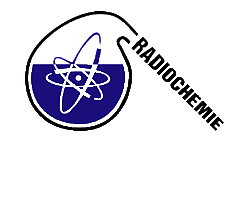Speaker
Dr
Valeriy Luchnikov
(Institut de Science des Matériaux de Mulhouse CNRS)
Description
Structure transformations owing to self-irradiation of materials by fission products of unstable isotopes constitute a special case of ageing phenomena. For instance, radio-decay of uranium
and thorium atoms substituting zirconium atoms in the crystal lattice of zircon causes radiation damage and gradual amorphization of the mineral’s structure. This process called metamictization leads to negating of birefringence, lowering of the mineral’s refractive index, hardness and specific gravity.
In our work, we consider theoretically intentional induction of ageing processes in materials via the introduction of small quantities of unstable nuclei in materials structure. It is argued that both mechanical and electronic properties of materials can be programmed over relatively large time intervals by the use of radioisotopes. The approach can open the route to novel materials with time-dependent functionalities. For example, radio-decay of unstable nuclei embedded in conductive polymers and dielectrics will enable the design of electrical resistors and capacitors with well-defined time-dependent characteristics. Such electronic elements can be explored for creation of electronic circuits which self-activate or self-desactivate after a certain time interval. Incorporation of minuscule amounts of radio-active species (e.g. carbon-14, tritium) in the structure of polymers, such as polytetrafluoroethylene, can be investigated for presetting self-decomposition of plastic products to a certain term. Relaxation of internal mechanical stresses, amorphization and swelling driven by self-irradiation can be used for programming the configurations of mechanical systems (e.g. bending/unbending of bimetal films) over large terms.
Possible implementations of the time-programmed materials and their perspective applications are discussed, as well as the radiation safety concerns and the choice of suitable radio-isotopes.
V. Luchnikov, J Mater Sci (2009) 44:6294–6301
Primary author
Dr
Valeriy Luchnikov
(Institut de Science des Matériaux de Mulhouse CNRS)

